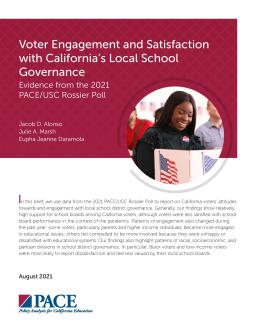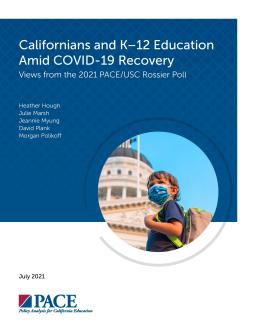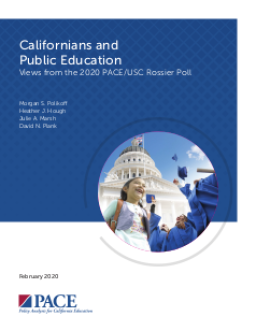Julie A. Marsh

Julie A. Marsh is a faculty director at Policy Analysis for California Education (PACE) and professor of education policy in the USC Rossier School of Education and the Sol Price School of Public Policy at the University of Southern California. She is also codirector of the USC Center on Education Policy, Equity, and Governance. Marsh specializes in research on K–12 policy and governance, blending perspectives in education, sociology, and political science. Her work focuses on accountability and instructional policy, with particular attention to the process and politics of adoption and implementation, and to the ways in which policies shape practice in urban settings. A second major strand of her research examines educational governance and efforts to decentralize and democratize decision-making. She is outgoing coeditor of the journal Educational Evaluation and Policy Analysis. Marsh received her PhD in education administration and policy analysis from Stanford University.
updated 2024







